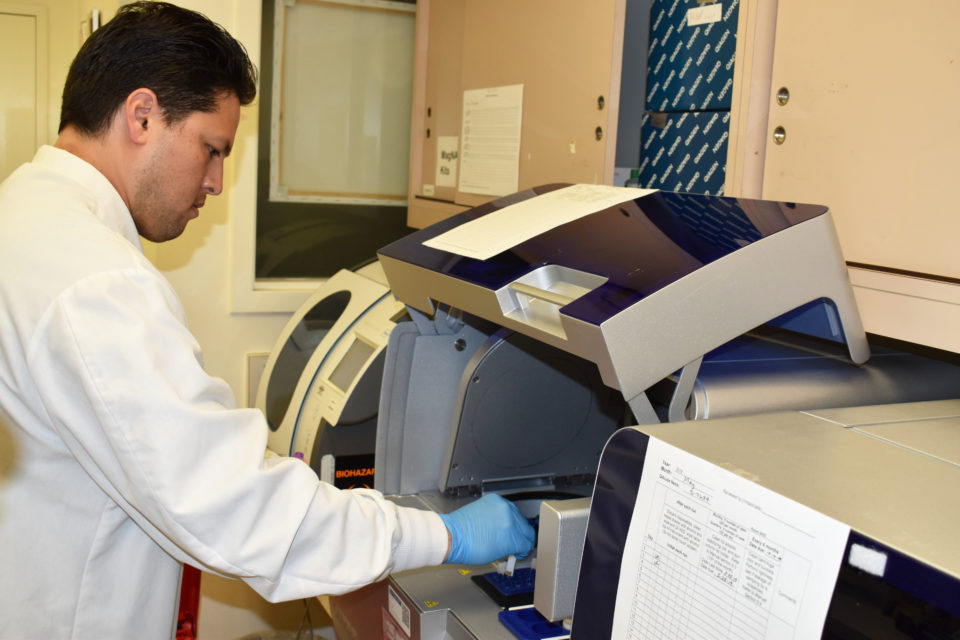
By SDCN Editor
San Diego, CA–San Diego County Health and Human Services Agency has confirmed the second case of measles this year in a 47-year-old resident who recently traveled overseas.
The announcement was made on Sunday, emphasizing that this case is unrelated to the previous one in February involving an unvaccinated infant who had also traveled abroad.
The infected adult is currently hospitalized and may have exposed others at various locations in Encinitas and Carlsbad. County Epidemiology and Immunization Services Branch Immunization Unit staff members are collaborating with Scripps Encinitas Hospital and Scripps Coastal Medical Center to mitigate further spread. They are identifying and following up with patients and staff who may have been in contact with the patient. The proactive approach aims to contain the spread of measles and protect the community from further outbreaks.
The individual visited the following sites:
March 22 – Naked Café, 288 North El Camino Real, Suite C, Encinitas, 9 a.m. to 12:30 p.m.
March 23 – Ralph’s Market, 125 N. El Camino Real, Encinitas, 10:30 a.m. to 1:30 p.m.
Leo Mullen Sports Park, 951 Via Cantebria, Encinitas, 1 p.m. to 4 p.m.
March 24 – Trader Joe’s, 115 N El Camino Real, Encinitas, 11 a.m. to 1:30 p.m.
Kingdom Hall Jehovah’s Witness, 1821 S Camino Real, Encinitas, 6 p.m. to 9 p.m.
March 25 – Tinleaf Fresh Kitchen, 6985 El Camino Real #108, Carlsbad, 1 p.m. to 4 p.m.
Ralph’s Market, 125 N El Camino Real, Encinitas, 2 p.m. to 5 p.m.
March 28 – Scripps Coastal Medical Center Encinitas, 477 North El Camino Real, 8:45 a.m. to 11:30 a.m.
March 29-30 – Scripps Encinitas Hospital Emergency Department, 354 Santa Fe Drive, Encinitas, 4:10 p.m. on March 29 to 1:30 p.m. on March 30.
Public health will determine if people at the above locations have been vaccinated and their potential for developing measles.
“Measles is a very contagious disease that can be spread easily by coughing, sneezing, or being in the same room with an infected person,” said Ankita Kadakia, M.D., County deputy public health officer.
Kadakia says anyone at any specific location and the dates and times listed should watch for symptoms and call their healthcare provider if they show any signs of the disease.
Measles develops seven to 21 days after exposure. Symptoms include a high fever, cough, runny nose, red eyes, and a characteristic rash that appears one to four days after early symptoms. A person is considered contagious four days before and four days after the rash appears. The rash typically begins on the face and head and then proceeds downward and outward to the hands and feet. It fades in the same order it began, from head to feet.
Health officials urge individuals who suspect they may have been exposed and are showing symptoms to contact their healthcare provider in advance to prevent exposure to others.
“The best way to prevent measles is by getting the measles vaccine,” said Kadakia. “With measles outbreaks occurring in several countries, it is very important that all international travelers get vaccinated. Infants between 6 and 12 months of age who travel should get one dose, and travelers over 12 months of age should get two doses at least four weeks apart.”
Complications from measles are more common in children including diarrhea, ear infection, and pneumonia. Death can occur from severe complications and the risk is higher among younger children and adults.
There is no treatment for measles. Bed rest, fluids, and fever control are recommended. People with complications may need treatment for their specific problems.
For more information about measles, other vaccine-preventable diseases, and the shots that protect against them, please call the Health and Human Services Agency Immunization Branch at (866) 358-2966 or visit www.sdiz.org.


